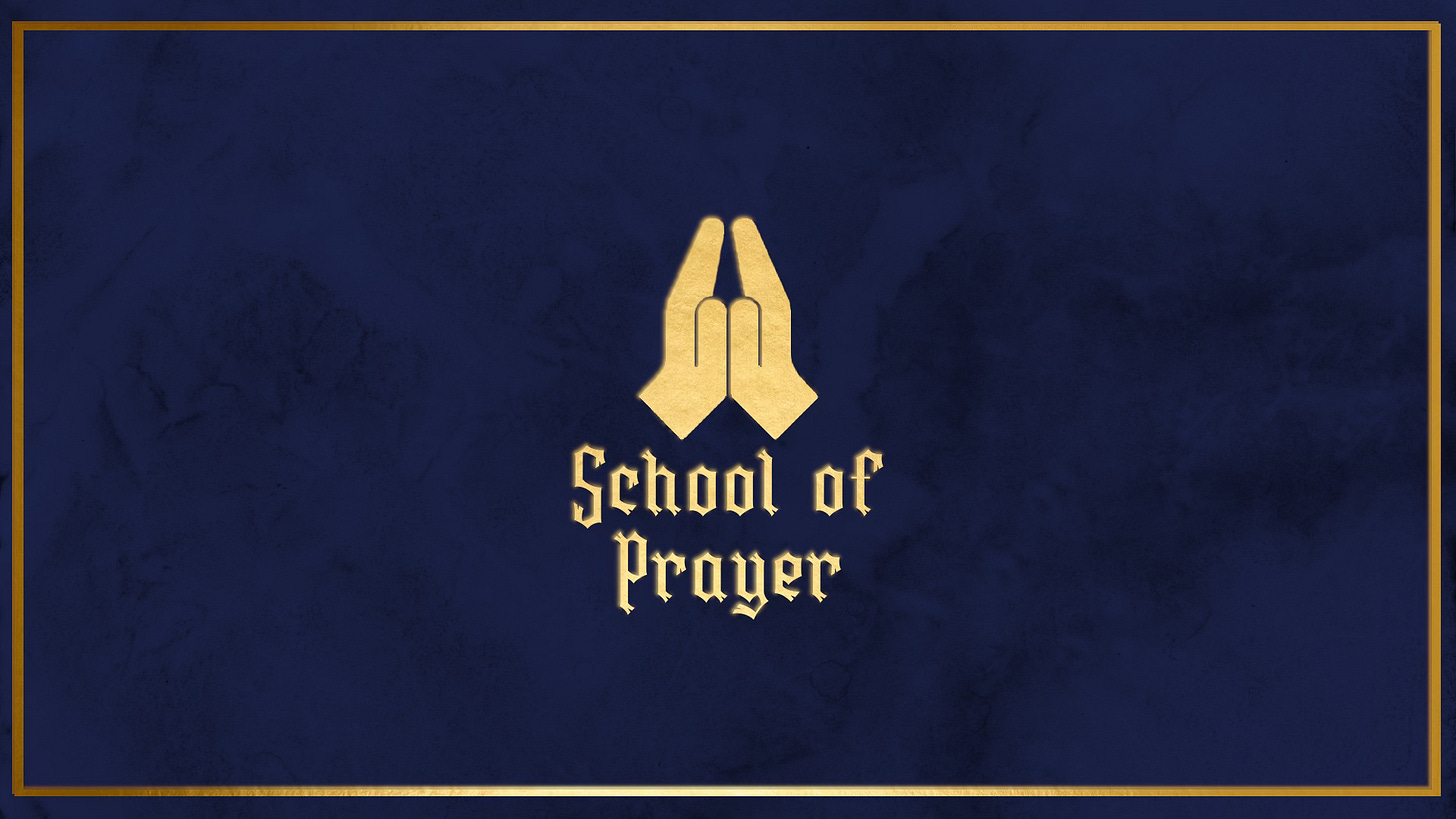The School of Prayer: Calling on the Name of the Lord
A preview of this week's sermon on a biblical theology of prayer
What was the first prayer you ever prayed? For those of us who grew up in the church it might have been a table grace you used in your family (God is great, God is good…) or that nighttime prayer many of us were taught to say (“Now I lay me down to sleep…If I should die before I wake…”)—nothing like beginning prayer with a potential nightmare! If you came to faith later in life, you might have prayed the sinner’s prayer or simply cried out with one of the three types of prayers that Anne Lamott talks about: “Help! Thanks! Or Wow!”
In many ways, our first prayers set the tone for the prayers we will pray later. We begin simply, even in a primitive way, but then as our relationship with God grows our prayers become more focused and rich. I think the same is true when we look at the history of prayer in the Bible—a history of prayer that should set the tone for the kinds of prayers and prayer lives God calls us to.
What’s the first prayer in the Bible? Some would say that it began with Adam and Eve in the Garden, talking and walking with God in the cool of the day. That’s a beautiful image, a face-to-face conversation, but the writer of Genesis doesn’t seem to equate that with prayer. After their relationship with God was broken by their idolatry and sin, however, the conversation and relationship between God and humans changes. In order for humans to be restored in that relationship, God had to set the agenda—an agenda we call covenant, or God’s promise to restore and reconcile sinful humanity and the creation that was broken as a result.
This Sunday we’ll be looking at prayer in the Bible and how “calling on the name of the Lord” formed the covenant community and raised their collective voices in asking God to come through on his promises. We’ll discuss the fact that the primary trajectory of prayer is not praise, lament, or intercession on behalf of ourselves and others—those are important and we do pray in these ways—but that all of those prayers are subsets of the larger purpose of prayer—to cry out to God to do what he has promised; to deal with the reality of sin and deliver us into his promised kingdom.
Join us in person at Aldersgate Church York or online at 8:00, 9:00, or 10:30am Eastern as we continue our lessons in The School of Prayer!




